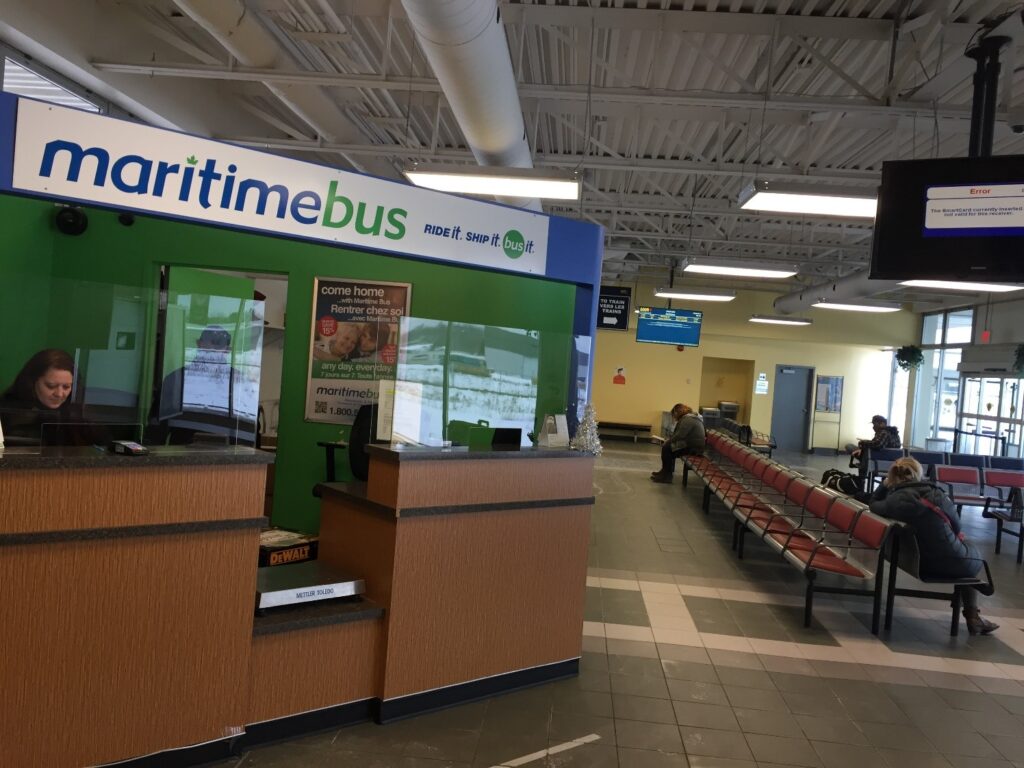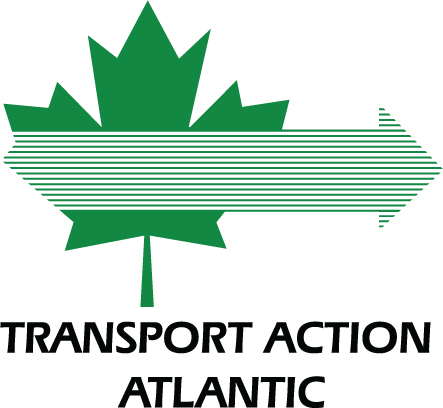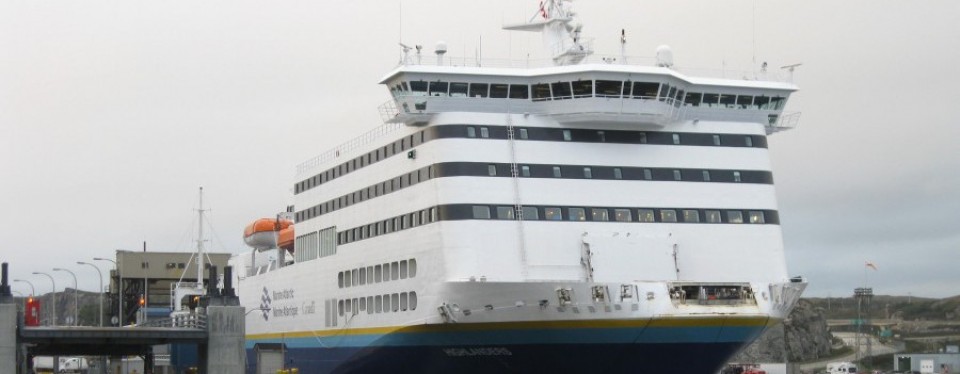Happy New Year! Welcome to the January edition of Atlantic Transport News!
Here’s a look at what you’ll find in this edition:
- Motorcoach service in New Brunswick under threat
- Atlantic Bubble stays deflated amid new travel restrictions
- Another setback for air service in the region
- St. John’s walks back a little on Metrobus cuts
- Campobello ferry gets another extension
MOTORCOACH SERVICE IN NEW BRUNSWICK UNDER THREAT

Thousands of New Brunswickers are about to lose their only remaining public transportation link. With the provincial government unwilling to extend a helping hand to assist it through the COVID-19 crisis, Maritime Bus has announced indefinite closure of its services between Moncton and Campbellton and Fredericton and Edmundston, effective January 15.
Company founder Mike Cassidy, who came to the rescue after Acadian Lines abandoned its service in the Maritimes in 2012, has been providing line-haul motorcoach service ever since. However, he says, his passion for “public transit on provincial highways” has to be balanced with available financial resources. In April 2020 as the first wave of the pandemic took hold, Maritime Bus carried just 650 passengers – a dramatic plunge from 14,500 in the same month of 2019. The three provincial governments provided a one-time grant at that point to help offset the company’s losses, and indicated a willingness to negotiate an ongoing agreement for the duration of the crisis. The tentative deal to help cover the May to December was concluded with officials of all three provinces, but New Brunswick Premier Blaine Higgs refused to endorse it, citing his government’s policy of not subsidizing for-profit companies.
“Unfortunately, one province didn’t want to play in the same sandbox as the other two,” Mr. Cassidy said in a CBC interview. “The only way to reduce my operating costs is to travel less kilometres in the province of New Brunswick.”
The Higgs government decision ignores the reality that Maritime Bus lost over $3 million in 2020, and has continued to provide an essential public service on all its existing routes throughout the pandemic – albeit at a reduced level. Transport Action Atlantic has urged the Province to reconsider this regressive policy, which will leave residents of the North Shore and the Upper Valley without any public transportation options.
New Brunswick Green Party Leader David Coon also called on the premier to come to the rescue and keep the bus routes operational. He said the service loss will, among other things, deprive residents in the affected areas of vital access to healthcare services, adding that the buses are essential for people who cannot afford a car or are unable to drive.
For his part, Mike Cassidy says he’s committed to maintaining passenger and parcel service throughout the three Maritime provinces, noting that his company has a proven record over eight years, with no public funding except for the one-time contribution from the three provincial governments last spring.
“I want to take the high road by staying in business and keeping a base of bus service for our region until we are back to the new normal of people travelling again sometime this year when certain stakeholders and political decision makers are in a better place and a better frame of mind to make impactful social community decisions,” he said, adding that “it goes without saying Maritime Bus optimistically hopes public bus transportation will be a key strategic component in future community connectivity discussions.”
ATLANTIC BUBBLE STAYS DEFLATED AMID NEW TRAVEL RESTRICTIONS
Don’t expect to see the Atlantic Bubble return anytime soon. That’s the clear message emerging from provincial premiers and health authorities in the aftermath of a relatively subdued and travel-restricted holiday season across the region. But all the precautions and restrictions were clearly not sufficient to keep the pandemic’s second wave contained. New Brunswick in particular recorded a dramatic upsurge in COVID-19 infections in the first week of the new year, prompting a return to the more restrictive “orange level” throughout the province effective at midnight on January 5.
While per-capita case counts remained low in comparison to Quebec, Ontario and Alberta, the region’s leaders were taking no chances. Nova Scotia, which had continued to allow other Atlantic Canadians to enter without self-isolating after the other three provinces had suspended the bubble in November, imposed restrictions at the border with New Brunswick on January 8. Meanwhile, Newfoundland and Labrador Premier Andrew Furey announced that his province would remain outside the bubble at least into February. And, New Brunswick announced that owning property or having family members in the province would no longer entitle non-residents to visit under the latest travel restrictions. All provinces were actively discouraging “non-essential” travel, but there appeared to be a variety of interpretations as to what that actually meant. One obvious complication is the relatively high number of residents who travel outside the region to find employment.
As of noon on January 10, the total reported active case count in the region stood at 212, over 80 percent of which were in New Brunswick.
Alerts continue to be issued about possible COVID exposure aboard flights into Atlantic Canada, while travel companies and some airlines appear to be flouting the advice of political leaders and public health officials by actively promoting offers to lure people onto planes and into resorts. Intergovernmental Affairs Minister Dominic LeBlanc was clearly not amused, telling Brunswick News in a recent interview that he views the practice as “absurd”. The minister added that the Government of Canada won’t be interested in helping airlines financially if they aren’t interested in restoring regional routes.
ANOTHER SETBACK FOR AIR SERVICE IN THE REGION

In what one airport CEO described as a “massive blow”, Air Canada is implementing further flight suspensions throughout Atlantic Canada, effective January 11. The move includes a total shutdown until further notice of all scheduled passenger operations at Sydney and Saint John, as well as suspension of four routes serving Charlottetown, Fredericton, Deer Lake, and Halifax.
Derrick Stanford, president of the Atlantic Canada Airports Association, said the latest round of cuts has whittled down service to an unsustainable level, adding that this is the third significant round of service reductions in six months. It follows hot on the heels of major cutbacks implemented in November by WestJet that wiped out most of that airline’s presence in the region.
“Our industry cannot survive and operate in these conditions, and we are seeing the worst-case scenario playing out here today,” Mr. Stanford said. “This will have a huge impact on our region’s economy, on the ability of families to reconnect, on the movement of essential workers, and on airport employees and businesses.”
Meanwhile, St. John’s-based PAL Airlines is adjusting its services from Moncton to Newfoundland and Labrador to accommodate the latest round of travel restrictions as best it can. The airline has abandoned its service between Charlo NB and Wabush NL, and combined it with a new route linking Moncton with Deer Lake. And, until interprovincial travel restrictions are eased, non-stop service between YQM and YYT has been temporarily eliminated. Effective January 10 until further notice, a tri-weekly DASH-8-300 flight will run St. John’s – Deer Lake – Moncton – Wabush and return. PAL’s Janine Brown says a daily St. John’s – Moncton – Ottawa routing is still their post-pandemic objective, with a separate service planned for Deer Lake and Wabush.
ST. JOHN’S WALKS BACK A LITTLE ON METROBUS CUTS
Metrobus users in St. John’s will not have to deal with schedule cutbacks during the worst months of winter after all. Faced with mounting criticism, City Council has backtracked somewhat on its plan to implement the reduced summer schedule in January, in an effort to meet a severe budget crunch. The 2021 transit subsidy will still apparently be hit by the intended cut of $800,000, but the savings will now be achieved by deferring planned service improvements, rather than cutting back on frequency during the three most severe months of the year. The reductions will now begin in April. Frequency changes in summer are a normal response when student ridership drops substantially and more people are biking or walking.
Meanwhile, service is back to near-normal schedules on most urban transit systems in the region, although ridership, and consequently revenues, remain a long way below pre-pandemic levels.
CAMPOBELLO FERRY GETS ANOTHER EXTENSION

The normally-seasonal Campobello Island ferry has received yet another extension. The New Brunswick government will now continue its financial support until February 7, 2021, to enable service four days a week (weather permitting) between Campobello and Deer Island, which is in turn connected with the NB mainland by year-round ferry. The only permanent access for the island’s 700 residents is through an international bridge to Lubec, Maine – a circuitous connection complicated by COVID-19 travel restrictions.
The Campobello ferry usually operates only during summer, and the privately-owned vessel is not well suited to sea conditions often encountered at this time of year. The schedule is therefore a bit of a moving target, and the operator, East Coast Ferries, is using social media to keep its customers informed.
Meanwhile, Campobello’s plight has found its way to the pages of the Toronto Star. This detailed item was published on January 3: https://www.thestar.com/news/canada/2021/01/03/cut-off-by-geography-and-covid-19-this-canadian-island-is-calling-out-for-a-link-to-the-rest-of-canada-to-no-avail.html






